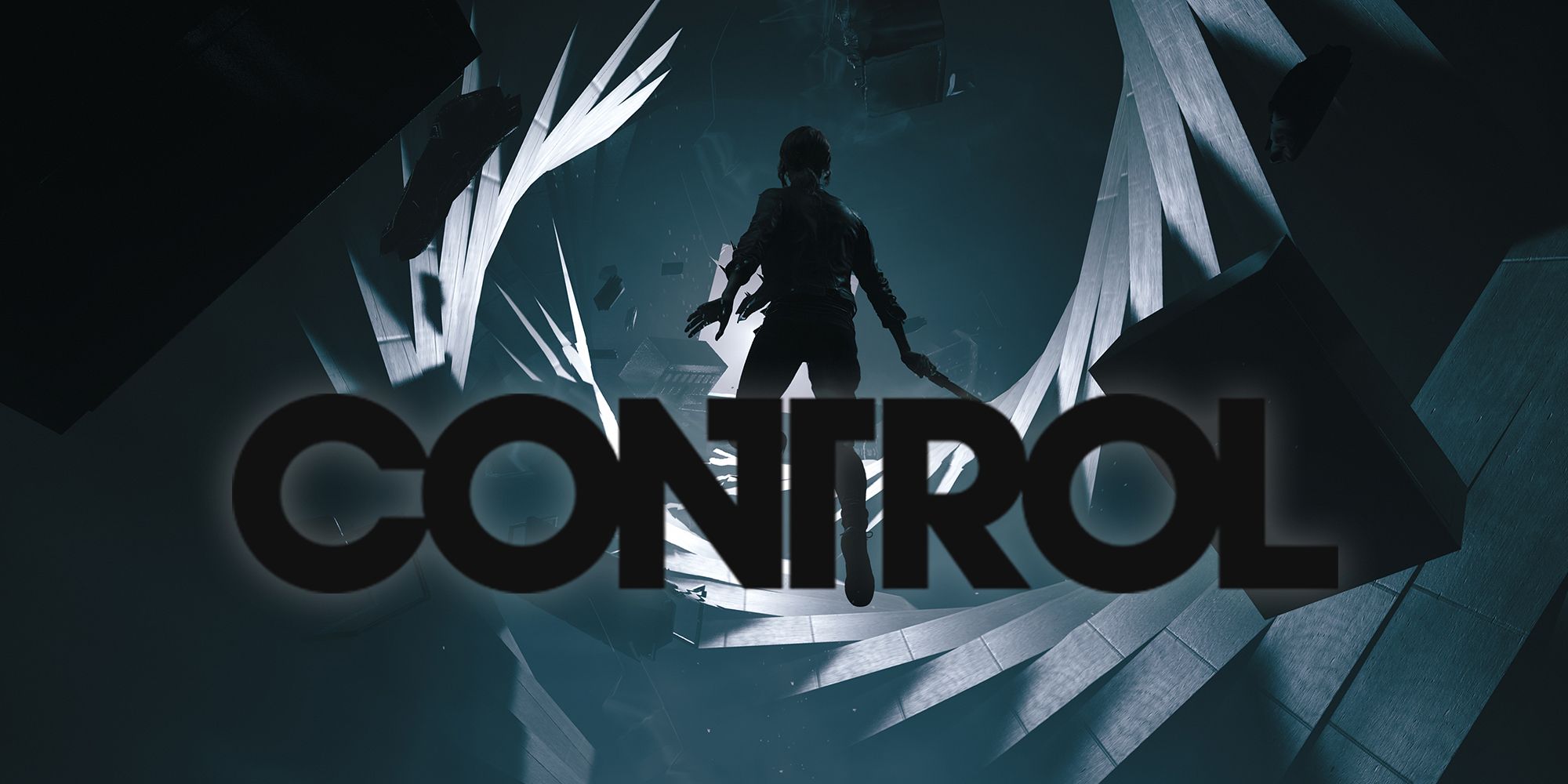
Remedy is one of the most acclaimed developers working in the video game industry. Their titles have always been known for layered and provocative storytelling, tight gunplay, and deeply characterized protagonists.
Through it all, from Max Payne to Alan Wake and Quantum Break, writer Sam Lake has been the tip of the spear for creating and conveying the worlds developed by Remedy. Lake first joined Remedy to write for 1996's top-down combat racer, Death Rally, but it was Max Payne which truly cemented him as a video game auteur, and established Remedy as a top-tier developer of story-driven, action-packed games for adults.
Related: Control Trailer: Remedy's New Gravity-Bending Mystery Game Revealed
Remedy's latest game, previously codenamed P7, is Control, which marks something of a departure for the Finnish team, while still maintaining the various core tenets of the studio's philosophy. Featuring fast-paced gunplay, supernatural powers, and a fantasy story rooted in the real world of New York City, Control is Remedy's first multi-console release since Max Payne 2: The Fall of Max Payne, and might just be their most ambitious project to date.
We sat down with Sam Lake to talk about Control, embracing weirdness, remaining an indie studio, and assembling Remedy all-stars like James McCaffrey, Matthew Porretta, and Courtney Hope for the new game. We also discussed Max Payne 2 and the Rockstar-developed Max Payne 3, and went in-depth on some of the new gameplay systems being developed for Control.
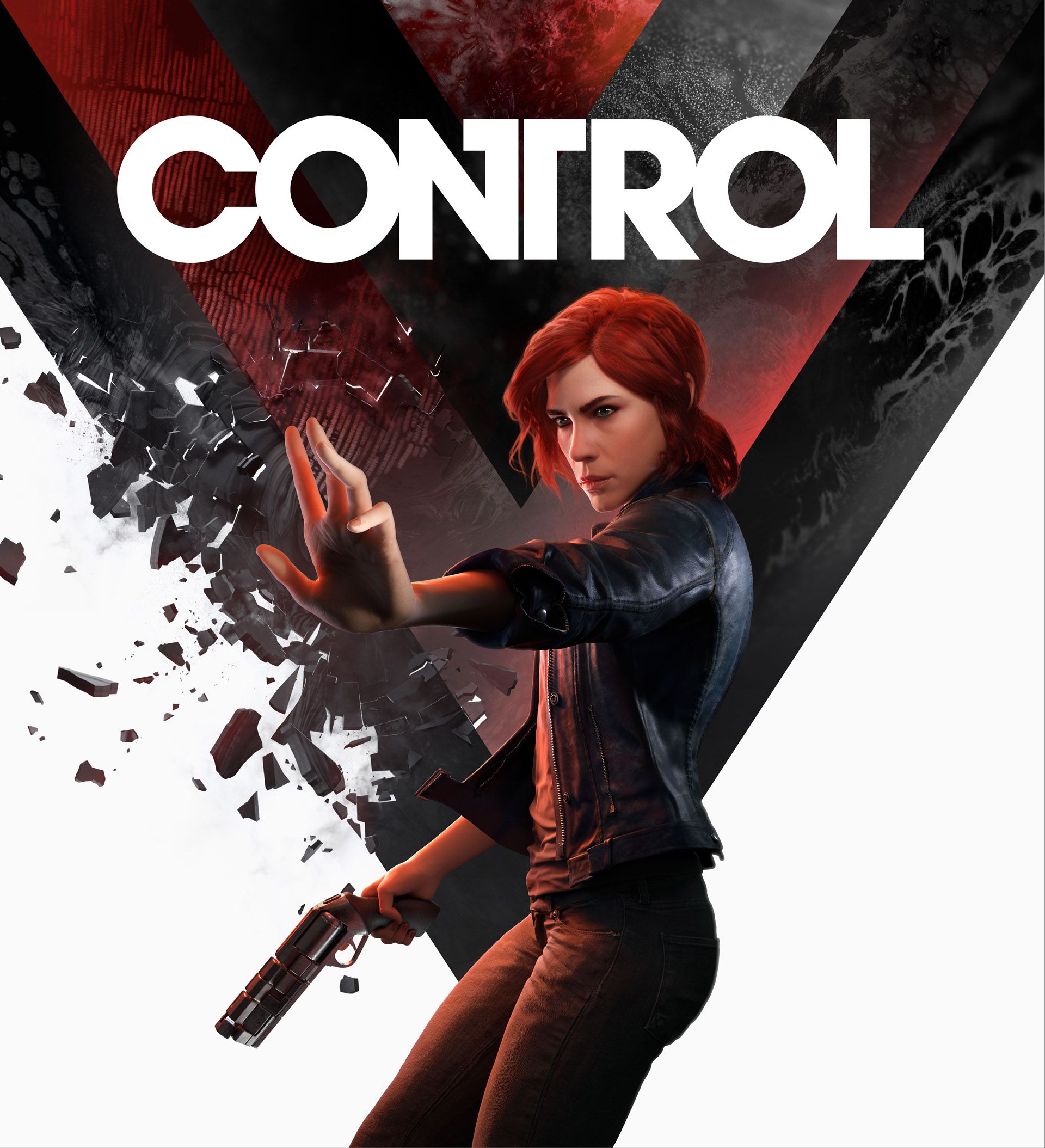
Tell us about your new game, Control.
Sure! Control is coming out next year. It's a supernatural, third person, action adventure game with a really deep world. We are a bit more focused towards taking steps into a game that's not just a linear experience, like our previous games have been. We're expanding our world so that the player has more to discover, more to explore, and can go in again and discover new things. World-building has been a big focus in this one.
Slightly different from our previous games, we wanted to try out an approach of "gameplay first." We wanted to create a more sandbox type of action game experience, with these strange supernatural powers that the main character has, to get different upgrades. Jesse, our hero, has this mystical service weapon. Kind of a supernatural version of an agent's service weapon, the Director's Pistol. It's this changing, shifting thing that you can also upgrade and customize, depending on the situation. So we combine these elements to give you more of a sandbox action experience where you can customize, you can try out different things. On the gameplay side, we have been investing a lot in physics.
Max Payne 2 was revolutionary for its realistic and stylized ragdoll physics.
We've gone as far into that as the current-gen tech allows, and dynamic destructibility of the environment is a big thing for us. With the supernatural powers that Jesse has, there's a lot of physics-related things. You can levitate, you can use telekinesis in different forms to break the surroundings and use them as a tool or a weapon. You can throw around dead ragdoll bodies. Early on, we decided what we wanted to achieve in gameplay, and then it became more like, "Okay, now let's create fiction and story that makes this possible and creates a world that elevates these ideas and makes these things possible."
With Quantum Break, the vision we had for that led to a mainstream experience. That was our take on mainstream! (laughs) Yeah it had time travel and it ended up being complicated nonetheless, but here we just decided to, ya know, let's have no stops. Let's go all the way, and if it ends up being weird and strange, we don't worry. We love that stuff. Let's just embrace it and go as far as we can, and trust that the gamers will follow and want to understand this mysterious, trippy world we are creating. That was a requirement for us to serve the gameplay, and be able to do all of these fun and crazy cool gameplay ideas that we had. That was our starting point: let's lean in more on exploration, choosing different missions, what to take and where to go, and maybe, with that, came the idea that it can be challenging and it can be fragmented in some ways that the players can go in and piece it together and do their own interpretations of what this possibly means, and ask a lot of questions. You can chase the mystery, you can try to find answers. Maybe we are not force feeding the answers and holding the player's hand, going "Look, this is the next clue," but it's out there; it's there to be discovered.
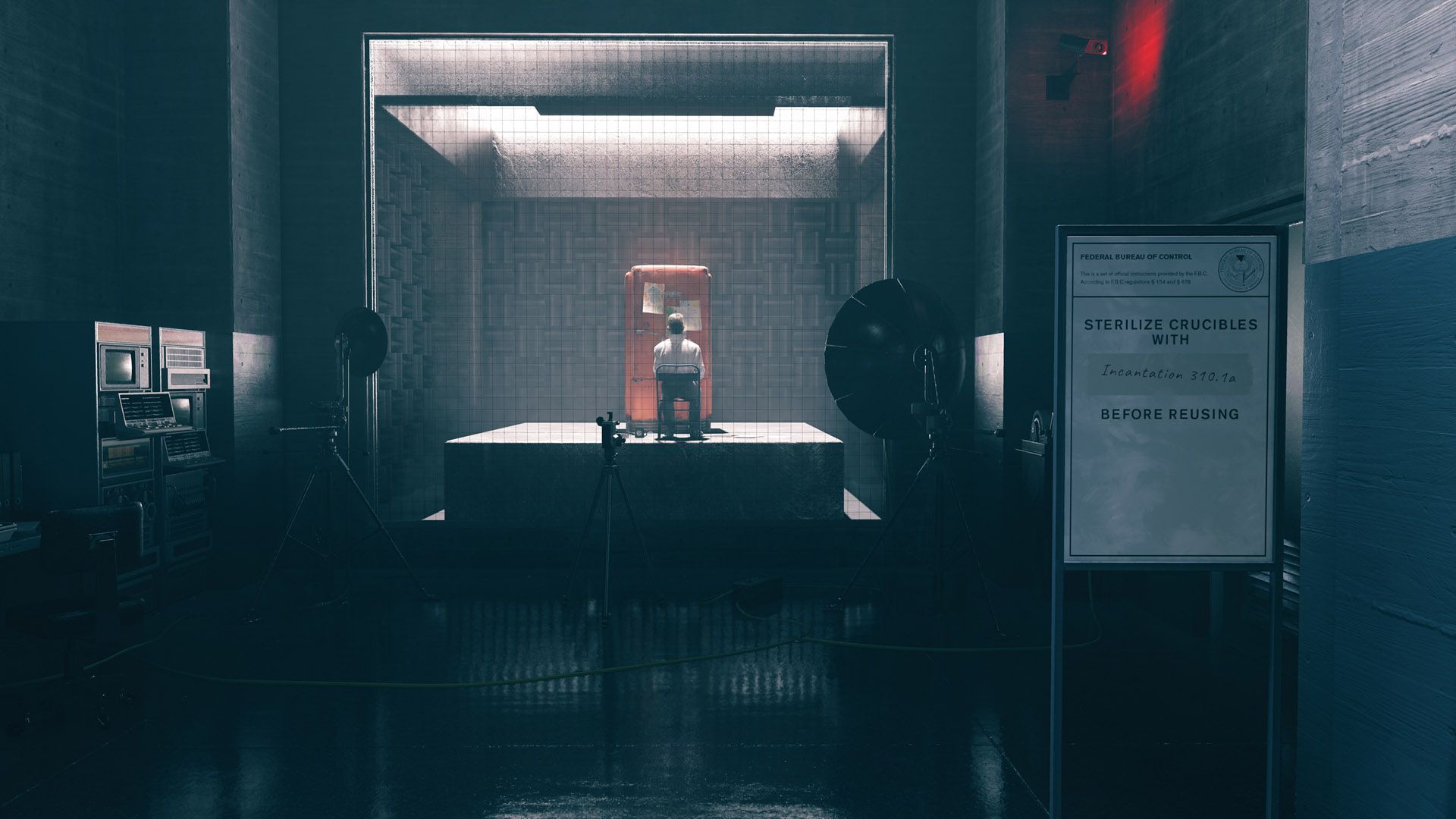
What is the story of Control? What is The Bureau?
The idea here is that, at the core of the mystery, is this very secretive clandestine government agency called The Federal Bureau of Control. The game is set in present day Manhattan, and we start, essentially, from a very ordinary New York street with yellow taxis driving by, and our hero, Jesse, has come here because she has these unresolved mysteries in her childhood that she's been trying to understand all her life, and now she's been brought here, to this building that is the headquarters of this secretive bureau, a building called The Oldest House. It's this bleak, brutalist architecture, concrete, windowless skyscraper, kind of hiding in plain sight. Nothing that catches your eye in a way.
Is The Oldest House based on the Titanpointe Building on Thomas Street?
It's part of the inspiration, certainly, yes. She goes in, and it's like, buckle up and liftoff, and it starts to get crazy. The Bureau investigates and tries to contain and use the unexplainable phenomenon it discovers. That's their mission. This building is a mystical, unexplainable place in itself; you can chase and discover bits and pieces of why that is the case, but it is the case. It is this strange place of power, this shifting place that seems to be this skyscraper from the outside, but when you get inside, it turns out to be much bigger than the outside would lead you to believe. Potentially, under the right conditions, it's endless. Like, you could keep on going and if the conditions are right and you make the ritualistic steps and you follow certain rules, then suddenly there is a doorway where there wasn't one and you can get into a totally new area in the building and just keep on going in this hallucinatory, dream-like way, deeper and deeper.
Are the levels crafted or are they procedurally generated?
To create them, we are using a modular approach, but yes, they are crafted. We custom-create the locations for this game, yes.
Among so many other pillars of what Remedy does, one of them is always having the tightest and most advanced shooting mechanics on the market.
Thank you!
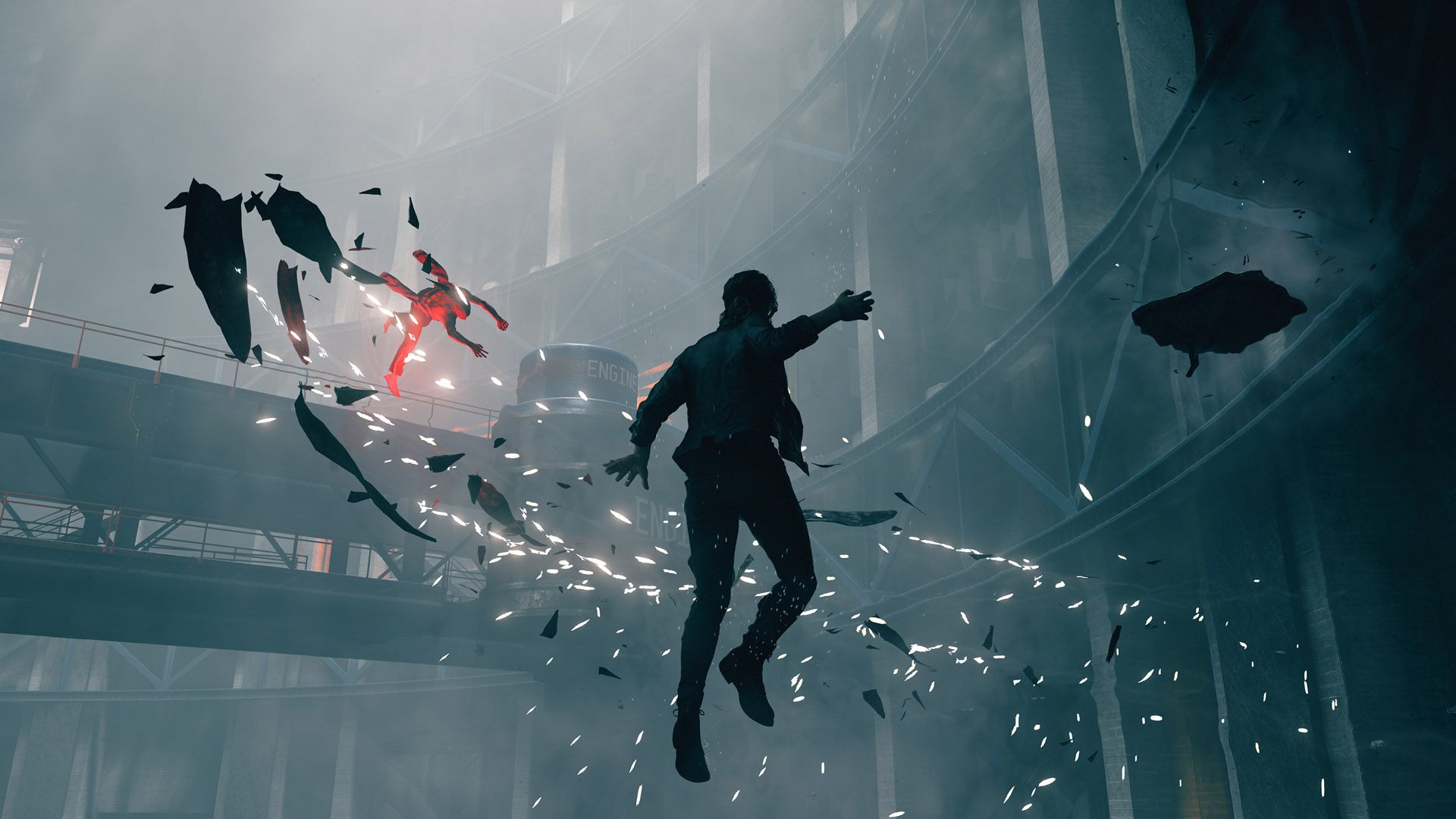
I mean, I remember when I played Alan Wake, and I thought it was going to be a slower adventure game, and, though it certainly has elements of that, but you're also blasting baddies like Robocop or John Wayne!
As any writer does! (laughs)
For Control, how are you advancing the shooting, that core mechanic? And is it still a core mechanic?
It is a core mechanic. We kind of see us do double step. In a way, we did a baby step into that direction with Quantum Break, with Jack Joyce's time powers, and certainly, shooting mechanics were there as well, but we are taking it a lot further. For Control, we wanted to create a deeper action game experience with different elements playing together. So we have Jesse's supernatural powers combined with her supernatural service weapon. Shooting mechanics are very much at the heart of it, but she also has these strange, strong superpowers.
What can you tell me about the service weapon, The Director's Pistol?
The idea here is that with this unexplainable phenomenon that the Bureau deals with, one thing is they follow strange events. They call them Altered World Events. Somewhere, something happens where the rules of our known reality are somehow broken, corrupted, and twisted by some sort of unknown outside force. And it changes things, and they go and investigate. Sometimes they find artifacts, essentially. They call them Altered Items. These items have somehow retained some of their strange energy. The most powerful ones are called Objects of Power. This particular weapon is one Object of Power that has been with The Bureau for quite a long time. It's almost like our modern, contemporary take on King Arthur's sword. In The Bureau, there is this rule that whoever wields the service weapon is the Director. Jesse doesn't know anything about this. She comes in, and she finds the previous Director dead. The service weapon is lying there on the floor, and it's a threatening situation because this building has been invaded by this violent, supernatural force called The Hiss. The enemies are corrupted agents of The Bureau; The Hiss has taken over and corrupted, changed them. To defend herself, to protect herself, she just picks up this gun, and ends up going into this very dreamlike, ritualistic challenge that she passes and then, suddenly, she is the Director, and the weapon accepts her as the new director. She doesn't understand what that means, and the player doesn't understand what that means, but there we are, very early on in the game, and you are, now, the Director of the Bureau, and the Bureau is in a horrible crisis and now it's your responsibility to do something about it. That's our starting point. This is the only weapon that the player has. It has many forms, and it changes so you can unlock new forms of the gun and keep on upgrading and customizing it in many ways. And you do have telekinesis, so there are ways of using other tools, but essentially, this is your gun.
Page 2 of 3: The Casting, Characters, and Setting of Remedy's Control
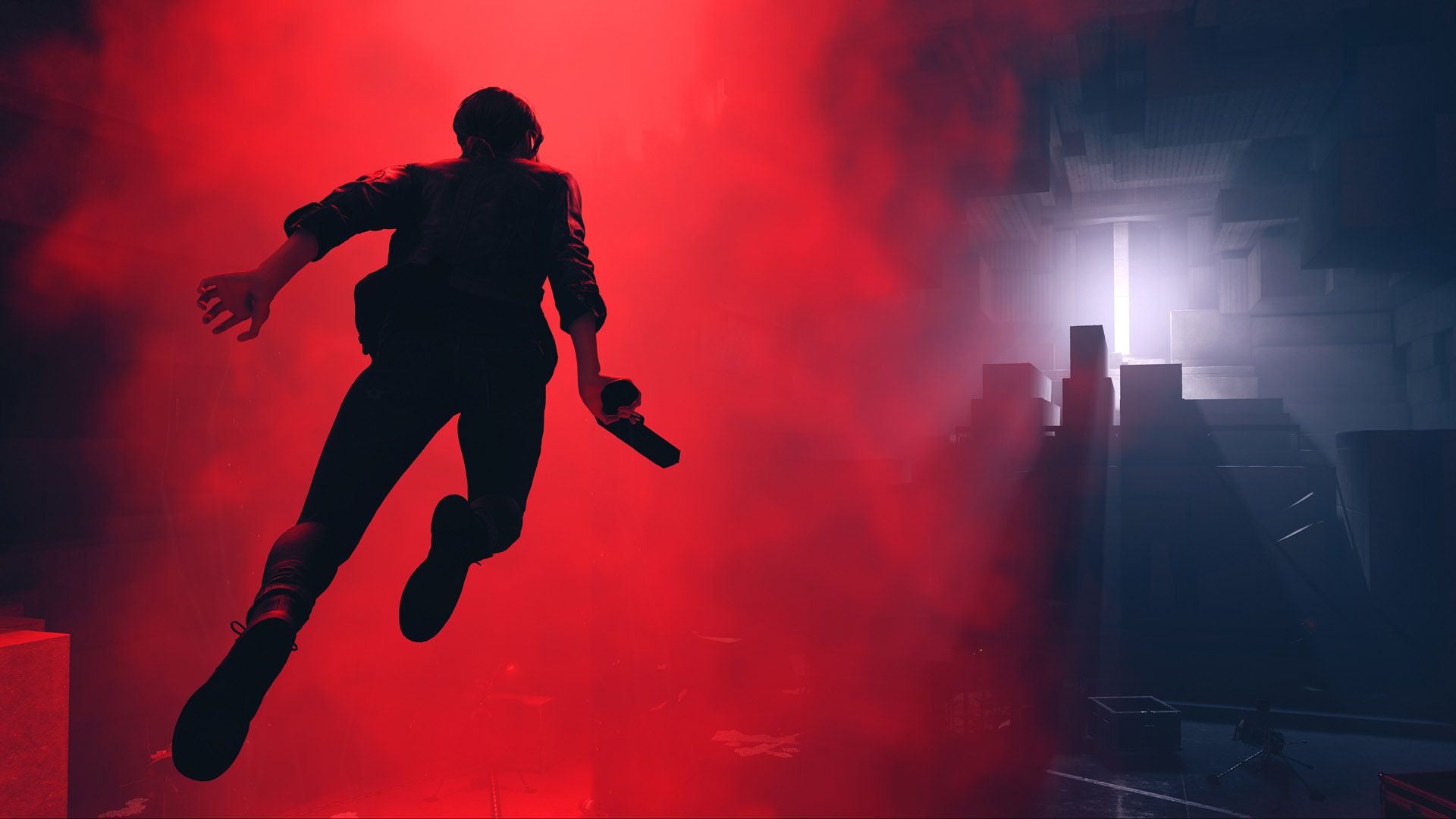
Let's talk about your cast. You always cast top talent, like James McCaffrey as Max Payne, and Matthew Porretta and Shawn Ashmore in roles as deep and compelling protagonists. What was it like casting Control?
The idea that came to us, very early on, was, let's have some fun with our casting. For Control, let's gather up a Remedy all-stars cast for this thing. So, the previous Director, Zachariah Trench, he's played by James McCaffrey (The voice of Max Payne in all three games in that series). Trench was essentially, the first character I came up with for Control. From the perspective that, we have this secretive government agency, and, ya know, the old Director there, I wanted to have someone hard boiled, somebody cynical, somebody who has had tragedy in their life, and who was once a man of action in their younger days. I was like, "huh, who does this remind me of? Oh yeah, we kind of had a character like that in a different thing." And who would be perfect to play that character? James. And so, actually, here, 2017, we came to the Tribeca Film Festival, to talk about storytelling in games, and I met with James, and I said that we're working on something and I might have this really fun, interesting role for you, and he was like, "yeah, sounds great," and here we are.
So Trench, he is dead. It's not a spoiler! It happens very early on. But the thing is, because of these mystical forces, he's still around. It's almost like this echo or ghost that haunts our new director, Jesse, giving her instructions and revealing bits and pieces of things, and so that's Trench. Then we had this idea, that Trench represents what the bureau is and has been, but now, obviously, things have gone really badly wrong. And this old regime, this old boys' club that has been running the show, they've messed it up. We need a new hero. Somebody with a fresh perspective, coming from the outside to this situation, and has to deal with it.
We wanted a younger woman, somebody who has dealt with the supernatural. Jesse had this very traumatic experience related to that, early on in her life, that changed her, and she's been looking for answers, and now she comes here and ends up in this situation and becomes the Director. Once again, I was thinking, who would be great for this role? And thought of Courtney Hope, who had played Beth, the main female hero in Quantum Break. The sad thing in that game was, as it often happens, as we wind towards the final game, you need to cut some things. Early on, we were considering giving Beth some time powers and things like that, but we just had to focus, and felt that Courtney was awesome to work with, and did a brilliant role as Beth. And so much positive response from players, so I reached out to Courtney and said, "Would you be interested in playing Jesse, the main role in this? You'd be great in it and we'd love to work with you!" And she was like, "Yeah, totally awesome." So that's how that came to be. As a last step for Remedy All-Stars, we have Matthew Porretta in a role as well. Matt, obviously, is Alan Wake's voice, but we have never been able to use his likeness in a game, because, ya know, we used to do things differently. It was a VO actor and a model separately. In Quantum Break, we finally got to use digital doubles, so Courtney played the full role of Beth, her likeness.
I actually didn't know that with Alan Wake!
For Alan Wake, we had, as model for the character, Ilkka Villi, who is a Finnish actor, and then Matt did the voice. But now we have Matt, ya know, in this full role, which is Doctor Casper Darling, who is the head of research for The Bureau. He is the main, brilliant scientist doing all the research about the unexplainable things and kind of pushing the boundaries of our known reality and the universe. This is a guy who has to deal with the most dangerous, most classified things, and keep a lot of secrets, and that's been a burden to him. And he's this reclusive character, ya know, who disappears into his lab for days and days, and who has also this other side to him, because he wants to distance other people from him. He doesn't want to be answering questions, so he a bit of a showman. He might appear, and people are expecting him to give a presentation, but he might just end up cracking some jokes or singing karaoke songs, this kind of strange persona. That's Matt, playing that role and really having fun with that, as well. So, ya know, that's "Remedy All-Stars." We have other roles there, other characters as well, but these are the ones that we are talking about now.
Is there a greater meaning to setting the game in New York?
I don't know. For me, always, somehow, New York, looking at it through the lens of pop culture and movies, it is such an iconic thing. Ya know, larger than life in many ways. It brings in certain elements so well, like Max Payne, yes, is very much a New York story. Even Alan Wake. Alan comes from New York and goes to a small town. It just felt, to me, like a natural place to go back to for Control.
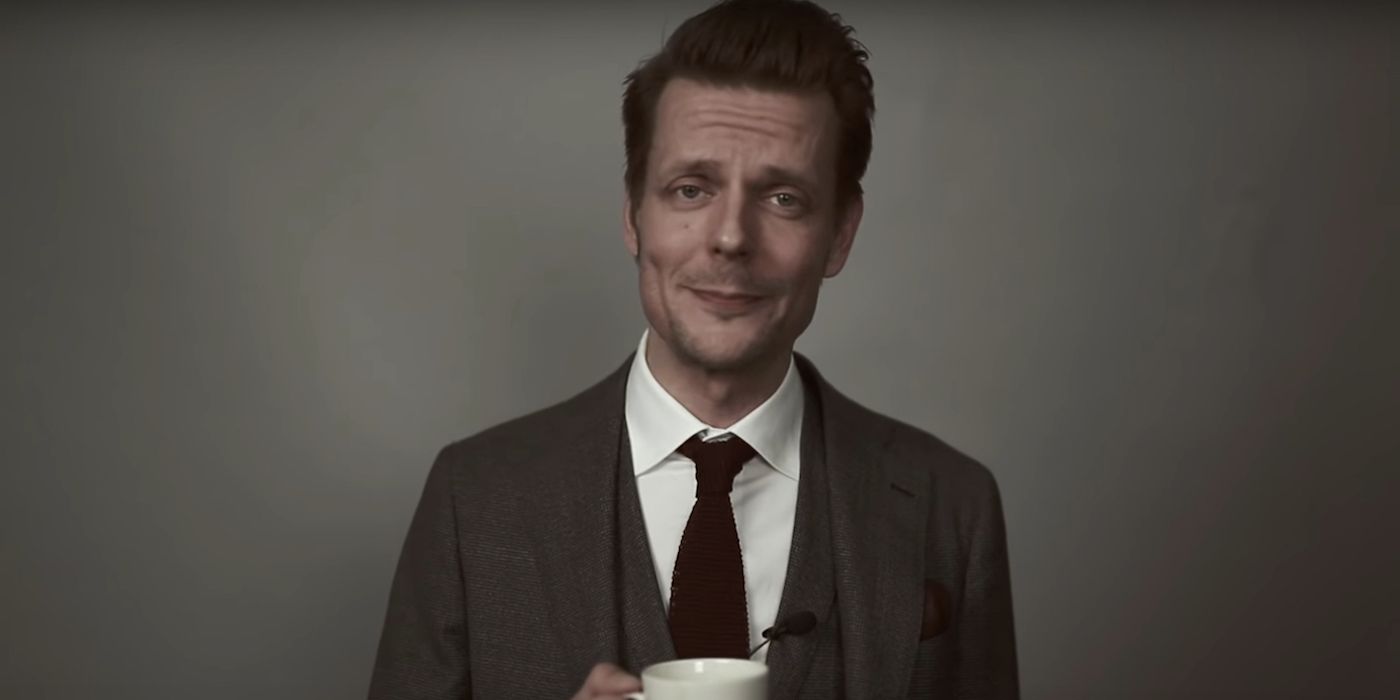
How much do you cooperate with your actors now that you're filming on sets? I imagine it's very similar to film, these days.
It depends on the material. We are mixing different mediums in some cases. But certainly, we are using motion capture sets, performance capture studios, VO recordings, you know, all of that combined. We have already done some of that in London for Control. We just moved, Remedy moved into a bigger office in the greater Helsinki area in Finland, and we have a big mo-cap studio. We have been flying in the actors there, and had done that for Quantum Break, as well. We did a lot of shooting in LA with Quantum Break. But now it's been London and Helsinki area.
Do the actors get to shape their performances a bit? Do they have a degree or influence over, like, "Oh, I don't think my character would say that?"
I think, to a certain degree, that is the case, and should be the case. You want the best possible, most believable performance. It's important that you spend time talking about it with the actor, and trying to find their version of the character as strongly as possible. It's a combination of what is written on the page, what is the direction, and what is the actor's take.
You talked about "the old way," and how Jesse represents this younger female who tries doing things differently, at least, if she survives this trial by fire. One heck of a job interview.
It is! It is.
Was there ever any kind of... There's so much tension right now, there was the 2016 election, and even right now, on the news, there's so much going on in the real world, in politics.
You can't really avoid it.
Do you take current events and... Do you keep the global and American cultural climate in mind?
Yeah. I think, it's nearly impossible not to, on some level. And obviously, you draw inspiration from popular culture. TV, if it can even be called TV anymore, ya know, many great shows, many experimental, like we have this kind of fragmented, dreamlike storytelling in this one, and there are great shows trying things, experimenting. Legion, Mr. Robot, things like that. Definitely kind of looking at those very carefully, and we've done dreamlike experiences in our games before, and this is like, maybe taking that a bit further. But at the same time, yes. Times change, and it's... I think part of the mix is what the surrounding world around us is. Not necessarily saying that we have a bigger message with this, but just, like, wanting to stay modern and contemporary. This is set in the present day, in the real world. Even though we kind of step over the threshold and we're on this very strange Hero's Journey in a way, and we leave the real world behind, but that, as a starting point, I think that it needs to be believable. And we are dealing with a lot of these things. So in some ways it resonated and felt fitting, ya know, to take a step in the direction where we modernize our hero, as well.
Page 3 of 3: Remedy's First PS4 Game And What Happened with MAx Payne 3
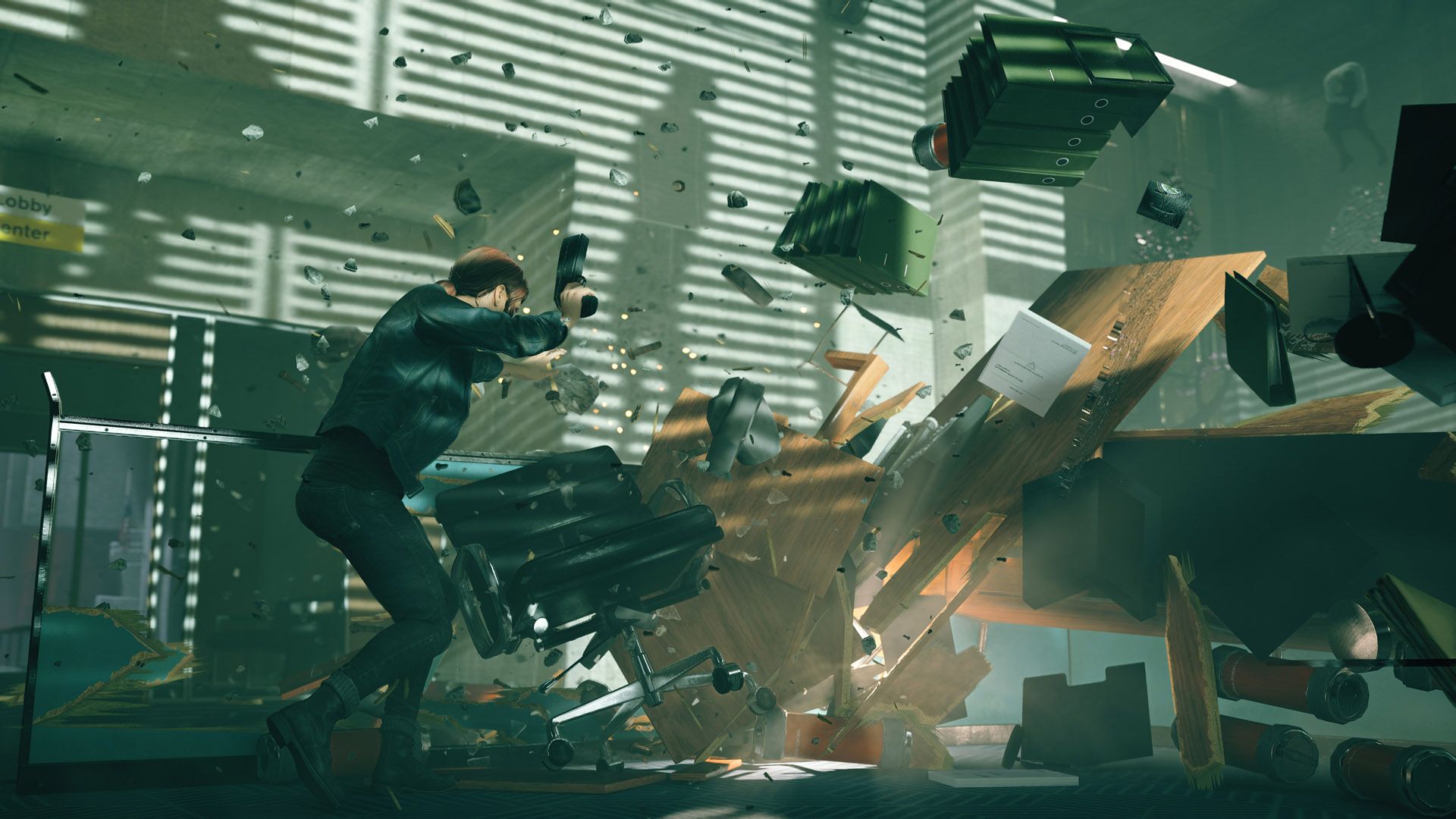
That's a great way of saying it! So, this is Remedy's first time on PS4. There was Max Payne 2 on PS2, but this is the first time on PS4.
Yes, we've been away for a while. We had a really nice time being exclusive and working with Microsoft, first with Alan Wake and then with Quantum Break. But we felt like now was the time to do something different. We are an indie studio. Taking a step back and thinking about it, we just want as many people as possible to have the possibility of playing our game. So, multi-platform made sense. And 505 Games, ya know, we started talking and felt they were a perfect partner for us to publish Control. Luckily, we also have a really nice relationship, through the years, with Sony. So E3 felt like a good step of making that statement, that we are on PS4, as well, to premiere the trailer at the PlayStation event.
You describe yourself as an indie studio. I love that, because no other games feel like Remedy games.
Thank you! That's what we really really strive towards. There is a lot of energy at Remedy. These days, we have two simultaneous productions going on. So, kind of, it feels like more talent and more energy than ever.
How do you maintain that identity, even though, since the old days of Max Payne 1, when you only had the budget to cast yourself as Max... And, who played Nicole Horne in that?
Nicole Horne was my mother.
Okay, I wasn't sure if that was just a rumor or not!
No, no. My dad was there, my brother was there.
And now you've got huge A-List talent.
Sure, but we still have friends and family in there, just for fun!
How do you maintain your independent spirit?
I feel that we do try to push ourselves, we try to experiment and bring in new elements, and always ask the question, "what is a Remedy game?" And, are these aspects serving us for this new thing? Are we leaving something behind? Are we bringing new elements in? But then, certain things just kind of, to me, have felt like a logical progression. As a storyteller, I wanted to use the dream element, of getting inside the head of our hero. That is, ya know, an interesting part of it. Voice over narration has been a consistent thing, as an example, but I try to come up with a different way of doing it each time. We're doing something different here, with Control. We have Jesse's inner voice in this. But there is some mystery and some weirdness happening with that. Right from the get-go, you kind of get that feeling of breaking the fourth wall, a bit like, is she talking to you as the player? What's going on? So we're trying to push and try out new things, but certain elements have, even if it changes the shape and style a bit, you can draw a link through these experiences. One big thing is technology. Remedy has always done its own tech and game engine and tools right from the beginning with Max Payne. Now we have the Northlight game engine (which also powered Quantum Break). The graphics and visual side is a really big thing for us. Finding a unique style for special effects, especially for an experience like Control, where there are a lot of mystical elements going on, how to kind of visualize that and bring it about. It takes a big team to create these experiences. Even if it's just me here, representing the team and talking about it, the team is such a huge, important thing, and brilliant people are working hard on it.
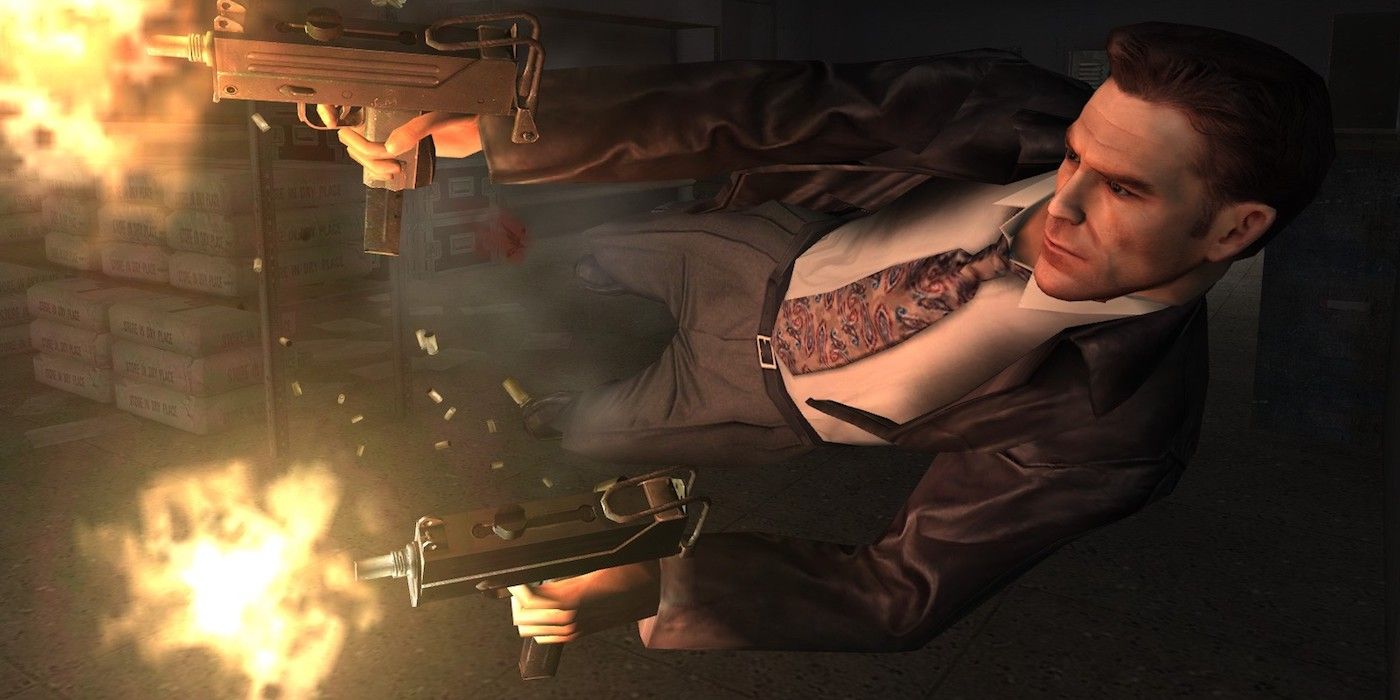
I wanna ask you one last question, going way back. It was very famous, the gap between Max Payne 2 and 3. And, ya know, obviously, you didn't write part three, you didn't work on that, but you worked on the comic, and I feel like it has your stamp on it, at least your stamp of approval.
Sure. Rockstar guys, Dan Houser and the others, they reached out to us at a certain point in development, and asked if we would be interested to play it through and give notes, which was really awesome and really nice from them. And it, to me, I mean, it most certainly looked like a Rockstar game. And it was their take on this idea, which was wonderful, I felt. It was much better in my mind to go that way than to try to maybe imitate too much what we would have done. So it was their take.
Max Payne 2 famously ended with... Even though everybody is dead except for Max and Bravura, but it says in the credits, "Max's journey through the night will continue." Were you ever working on anything internally?
No. Actually, how it went on the contract side, ya know, after the first game came out, the IP rights were sold to Take-Two and Rockstar, and part of that deal was an agreement that we would create the sequel. So, ya know, with that understanding, it was a nice situation. We have a lot of passion towards Max Payne. It was wonderful to create that, and to take certain ideas from the first one and... Making a sequel is great fun in many ways. But at the same time, that was all with the understanding that this will be the final Max Payne game for us. And you could kind of go through that emotional process while working on it, saying goodbye. So, from a creator's perspective, that was a really nice way to go.
It definitely feels like a game where all the cards were on the table. Thank you so much for your time.
More: Everything We Learned About Remedy's Control At E3 2018
from ScreenRant - Feed https://ift.tt/2Qwi188





No comments: